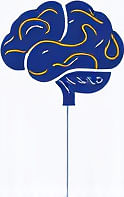Daily Affirmations for Neurodivergent Adults in Remote Work
 by Verner Mayer
by Verner Mayer
Discover how daily affirmations can support neurodivergent adults, such as those with ADHD or autism, in achieving better productivity and work-life balance while working remotely. This article shares practical tips and examples to integrate affirmations into daily routines for a more focused and balanced life.

Remote work offers flexibility, but it can present unique challenges for neurodivergent adults. For individuals with ADHD or autism, maintaining focus and balance requires strategies that build confidence and self-awareness. Daily affirmations serve as a simple yet effective tool to foster this.
Many neurodivergent people find that starting the day with positive statements helps reduce overwhelm. These affirmations act as gentle reminders of personal strengths and capabilities. For example, saying something like "I handle tasks one at a time" can create a sense of control in a home office environment.
One key benefit of affirmations is their role in building routines. By repeating them consistently, individuals can train their minds to stay grounded. This is especially helpful for those with ADHD, where distractions might interrupt flow. Consider affirmations that address specific needs, such as "My ideas matter and I express them clearly," which promotes communication during virtual meetings.
In remote settings, work-life balance often blurs, making it hard to disconnect. Affirmations can help set boundaries. A statement like "I deserve rest after work hours" encourages stepping away from the screen. This practice supports overall well-being and prevents burnout.
To make affirmations more effective, incorporate them into existing habits. For instance, say them during morning coffee or before checking emails. This integration turns them into a natural part of the day. For adults with autism, who might prefer structure, writing affirmations in a journal can provide a visual aid.
Creating Your Own Affirmations
Start by identifying areas where you need support. If focus is a challenge, try affirmations like "I stay present with my work." Keep them positive and realistic to ensure they resonate. Aim for short phrases that are easy to remember.
Here are some examples tailored to common neurodivergent experiences:
- For ADHD: "I manage my energy effectively during the day."
- For autism: "I communicate my needs with confidence."
- For general remote work: "I create a space that works for me."
Using these, you can adapt them to fit personal situations. The goal is to reinforce positive self-talk, which over time leads to improved productivity.
Tips for Implementation
Begin with just one or two affirmations each day to avoid overload. Place sticky notes around your workspace as reminders. Over weeks, track how these statements influence your mood and output. Many find that regular use leads to better task completion and less stress.
Pair affirmations with other strategies, such as timed breaks or organized to-do lists. This combination enhances their impact. For neurodivergent adults, consistency is key, so choose a time that aligns with your natural rhythm.
The Impact on Productivity
Affirmations contribute to a positive mindset, which directly affects work performance. By reducing self-doubt, they allow for clearer thinking and better decision-making. In remote roles, where isolation can amplify challenges, this mental boost is invaluable.
For those with ADHD, affirmations help combat forgetfulness by reinforcing focus techniques. Similarly, for autism, they aid in managing social interactions, like team calls. Overall, they promote a healthier approach to daily tasks.
Building Long-Term Habits
Incorporate affirmations into broader self-care practices. Combine them with physical activity or mindfulness exercises for added benefits. As you progress, refine your statements based on what works best.
The beauty of affirmations lies in their adaptability. Whether you have ADHD or autism, they offer a personalized way to navigate remote work demands. By prioritizing this practice, you invest in your long-term success and happiness.
In summary, daily affirmations provide a supportive foundation for neurodivergent adults. They encourage balance and productivity in remote environments, leading to a more fulfilling professional life.
